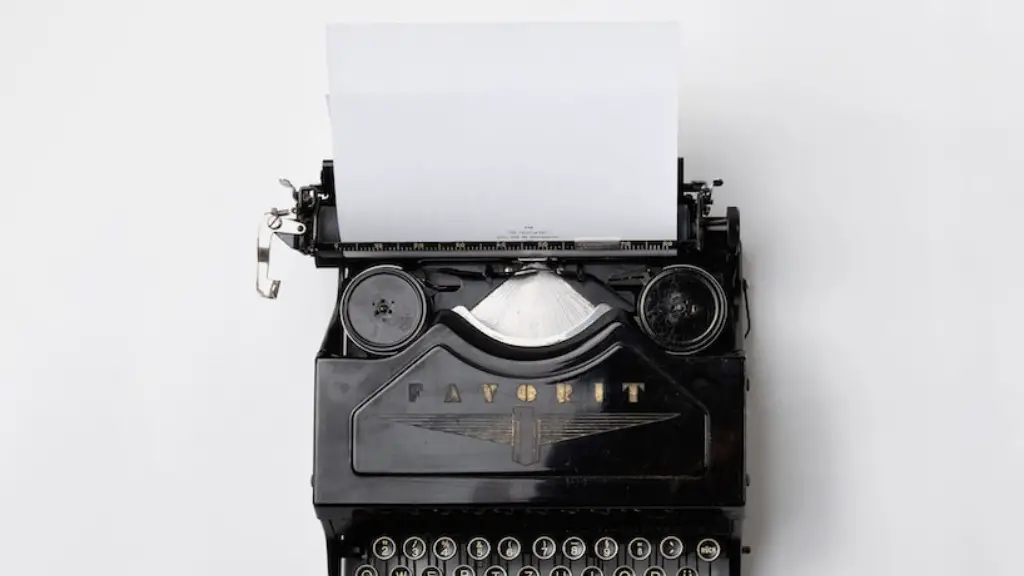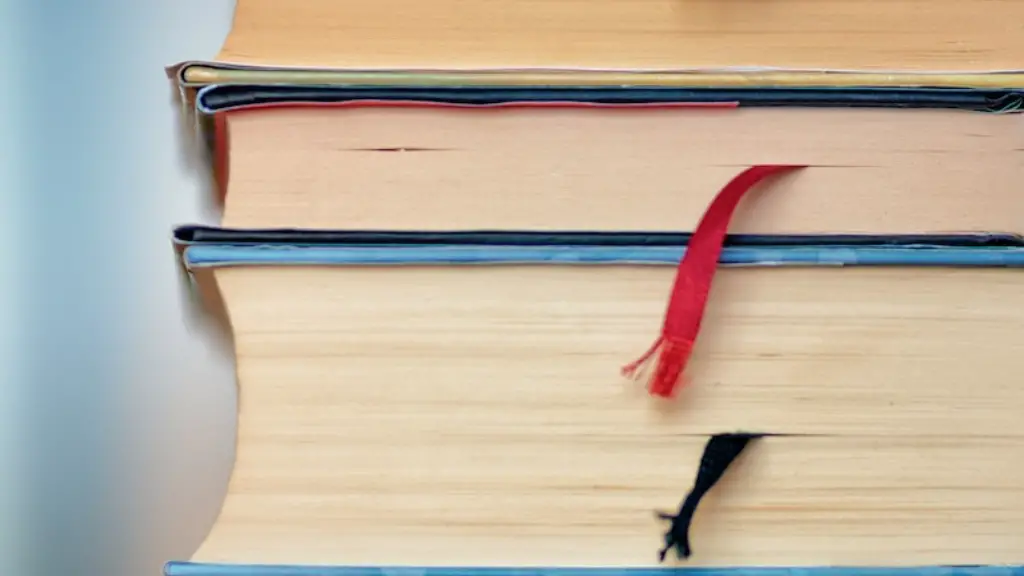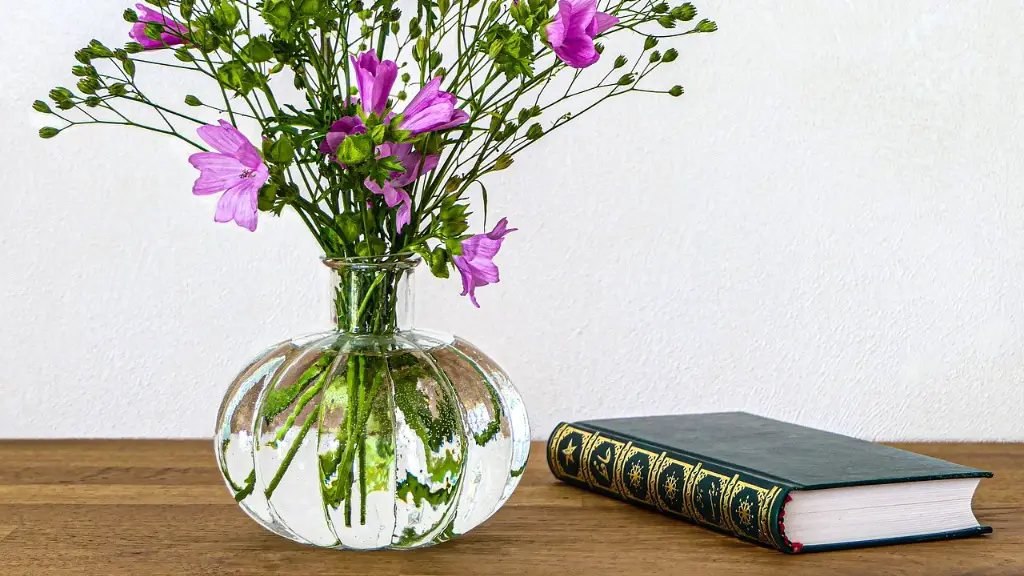Poetry has been around for thousands of years and has been used to express emotion and convey thought. While it may appear on the surface as simply a pattern of words, poetry is more than just a way to form sentences; it has come to represent a form of powerful and symbolic expression of personal and collective life experience. Poetry goes beyond a mere collection of words, acting as a way to explore human emotion and experience, and to ask questions and explore ideas. In its simplest form, poetry is a language unto itself, one that can penetrate and move a person in ways other forms of communication cannot.
The language of poetry has been used by different cultures to express their thoughts and feelings for centuries. Poetry is an ancient and powerful tool for communication, allowing people to tell stories and convey ideas in a unique way. Through its use of metaphor, imagery, and rhythm, poetry conveys meaning and emotion in a way that is both versatile and compelling. It has the power to spark the imagination and transport readers to an entirely different reality. In addition to acting as a means of self-expression, poetry serves as a form of entertainment, allowing writers and readers to come together over language and create a community of shared understanding.
While the purpose of poetry may vary from person to person, the desire to communicate and to understand others is what drives many people to create it. Poetry can be a way of exploring and expressing one’s own thoughts and feelings, and can be used to share experiences with others. Through the written word, we gain a better understanding of the human condition and explore themes of love, loss, fear, and hope. Poetry can also promote dialogue and understanding by allowing us to access the perspectives of different cultures and backgrounds.
The creative process of writing poetry can be an immensely rewarding and fulfilling experience. Writing poetry allows us to express ourselves in a way that is free of rules and conventions, allowing us to craft original works of art. Through poetry, we are able to access our innermost thoughts and feelings, and to explore new ways of looking at the world and understanding the human experience. By expressing ourselves in this way, we gain insight into ourselves and the world around us.
Poetry also has practical applications in a variety of contexts. It can be used as a tool for psychological healing, a platform for social justice, and a form of protest. By understanding a person’s lived experience, we can gain a better appreciation for their story and the circumstances that surround it. Poetry can also be used to share and celebrate cultures, to inform and educate, to create a sense of community, and to create an emotional connection with an audience.
Ultimately, the reasons why people create poetry are varied and unique. Whether it is for self-expression, for entertainment, for understanding, or for any number of other reasons, poetry serves as a powerful tool for communication and connection. At its core, poetry is a way of exploring the depths of human emotion, of expressing unique perspectives and stories, and of connecting with others through the power of the written word.
Poetry as an Art Form
Poetry is an art form that has the potential to stand the test of time and endure through generations. In an age of digital distractions and short attention spans, poetry encourages readers to dig deeper and explore the possibilities of language. It can bring insight into our life experiences, helping us to process and make sense of our emotions. Reading and writing poetry can be an incredibly fulfilling activity, as it forces us to slow down and contemplate the complexities of the human experience. By engaging with poetry, we gain a greater appreciation for the power of words and their ability to evoke emotion.
In the age of social media, it has become increasingly important for people to express themselves in creative and meaningful ways. Poetry provides a platform for creative expression and exploration of feelings, ideas, and relationships. By crafting well-crafted pieces of writing, we can start meaningful conversations about important topics, find common ground with those around us, and create a sense of belonging.
As an art form, poetry has a unique ability to speak to us on a deep level. By being allowed to explore the depths of our emotions and thoughts, poetry can help us to make sense of the world around us. Through the use of metaphor and imagery, it can transport readers to foreign lands and explore ideas beyond our own life experience. By expressing ourselves through this powerful medium, we are given the opportunity to connect to ourselves and others in meaningful ways.
The Impact of Poetry
Poetry has the power to influence the masses and to impact culture, politics, and societal norms. Poets have been responsible for some of the most profound works of art in history, poems that tell stories, explore ideas, and illuminate the complexity of the human experience. Through the use of metaphor and imagery, poets can challenge conventions and inspire people to think in new ways. Poetry provides an open platform for exploration of the issues that matter to us and is an important tool for raising awareness and sparking conversations about difficult topics.
Poetry has long been used by writers to express their dissent and to speak up against oppressive regimes and societal norms. By using language as a tool for expressing their opinions and beliefs, poets can challenge the status quo and spark change. In recent times, there has been a resurgence of political poetry, with works by writers such as Amanda Gorman and Sarah Kay gaining widespread attention and acclaim.
Poetry can also be used to celebrate and explore cultures and identities. Poets are able to use their works to tell stories, promote dialogue and understanding, and create an emotional connection with readers. By reading and writing poetry, people are able to embrace their own stories and explore ways of understanding the history and experiences of others.
The Relevance of Poetry in Modern Times
In a world dominated by screens and digital distractions, poetry offers readers an opportunity to slow down and appreciate the power of words. In an age of technology and instant gratification, poetry encourages readers to take time and explore the possibilities of language in a way that transcends the constraints of everyday life. By engaging with poetry, we are invited to ponder and digest deeper thoughts and explore ideas that we may not otherwise be introduced to. Through its use of metaphor, imagery, and rhythm, poetry can open up possibilities and transport readers to other realms of thought.
Poetry has the power to educate and inspire. By engaging with the ideas and life stories of poets, readers can gain a better understanding of the human condition and explore alternative perspectives. Through its use of language, imagery, and metaphor, poetry is able to express meaningful stories that resonate with readers and help them to make sense of their own experiences. Poetry provides a unique platform for expression and exploration, and when read and appreciated in its intended form, it can be an incredibly powerful tool for learning and healing.
In an increasingly digital world, poetry has the potential to provide readers with an escape from the chaos and overwhelm of everyday life. By engaging with the written word, we are able to access our creativity and explore ways of understanding the world around us. Poetry invites us to slow down, contemplate, and explore the complexities of the human experience and can help us to make sense of our own emotions and life stories.
The Joy of Writing Poetry
Writing poetry is an incredibly rewarding experience that can provide both mental and emotional insight into our lives. By engaging in the creative process of writing poetry, we are able to explore and express our thoughts and feelings in a way that is free of constraints and conventions. Writing poetry helps us to access our innermost thoughts and feelings and to explore new ways of looking at the world and understanding our experiences.
Writing poetry gives us the opportunity to share our own stories and to discover the stories of others. Through the creative process, we can create works of art that have the power to move people in ways that cannot be done with other forms of communication. Writing poetry can also be a form of therapy, allowing us to process our feelings and experiences in a safe and creative space.
The process of writing and reading poetry can be a transformative and meaningful experience. Poetry has the power to bring us together, providing a space for meaningful dialogue and exchange of ideas. By engaging with this powerful art form, we can gain insight into our own lives and experiences, as well as those of others. Through the written word, we can explore ways of understanding and forming connections with those around us.
The Power of Poetry
Poetry is a powerful way to explore and express emotion, thoughts, and experiences. Through its use of metaphor, imagery, and rhythm, it can bring to life ideas, feelings, and stories in a way that is both meaningful and captivating. Poetry can act as a platform for self-expression, allowing people to create works of art that challenge conventions, spark conversation, and bridge gaps in understanding. While the reasons why people create poetry vary, there is something special about the power of words and their ability to evoke emotion and offer a glimpse into one’s innermost thoughts and feelings.
By expressing ourselves through poetry, we are able to access our creativity and discover new ways of looking at the world. Poetry can help us to process our emotions, sparking conversation and creating a sense of connection with those around us. It can provide a platform for exploring the complexities of the human experience in creative and meaningful ways. Ultimately, the power of poetry lies in its ability to move people and to provide an outlet for self-expression and exploration of ideas.





